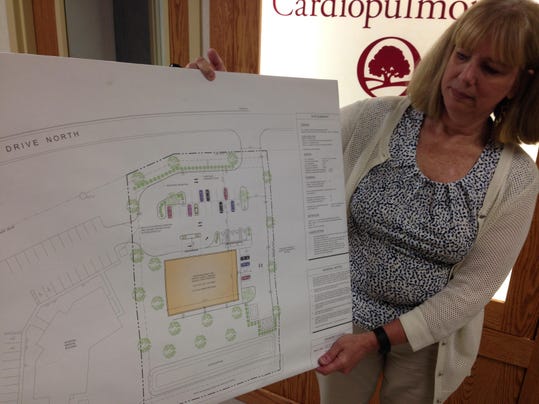|
<![CDATA[.cms-textAlign-left{text-align:left;}.cms-textAlign-center{text-align:center;}.cms-textAlign-right{text-align:right;}.cms-custom-quote{border-left: 1px solid #eee; margin-left: 15px; padding-left: 15px; font-style: italic; font-size: 17px; line-height: 28px; color: #666;}]]>
By BRADY McCOMBS, Associated Press
SALT LAKE CITY (AP) — The son of an inmate who died at the Utah state prison has sued corrections officials and health care providers, accusing them of violating his father's civil rights by failing to give him dialysis for two days.
Inmate Ramon C. Estrada died April 5 after two dialysis technicians switched shifts and nobody showed up for his appointment.
Estrada's son, Jose Estrada, who lives in Edcouch, Texas, filed the lawsuit in federal court this week. The lawsuit was filed against the state prison warden, the clinical services director at the prison and the director of the offsite dialysis clinic that's part of the University of Utah health care system
"Defendants exhibited a shocking degree of deliberate indifference and reckless disregard for the serious and evident medical needs of Ramon Estrada," the lawsuit alleges.
Utah Department of Corrections spokeswoman Brooke Adams said she can't comment because they have not officially received the lawsuit and because the department's internal investigation is ongoing.
University of Utah Health Care system spokeswoman Kathy Wilets also declined comment on the lawsuit, referring to statements made in April when the university said it deeply regretted the mistake and vowed to take the necessary steps to ensure a scheduling mix-up would not happen again.
The two technicians have been disciplined, but they remain employees, Wilets said. The health care system's investigation didn't find any bad intentions, just a terrible scheduling error, she said.
Clair Coleman, office manager at the South Valley Dialysis Center where the technicians work, declined comment on a lawsuit he hasn't seen yet. But he said they have taken steps to improve scheduling and ensure prison officials know how to get ahold of him or his workers.
He lamented the fact that prison workers waited two days to call his office after the appointments were missed in April. "All the changes in the world won't make a difference if the prison doesn't call when someone is late or doesn't show up," Coleman said.
The attorney for the Estrada family, Alyson McAllister, said the four adult children are suing because they can't get any information from the prison about what happened and because they want to ensure the same thing doesn't happen to other inmates.
"Those technicians definitely bear some responsibility for this, but more responsibility lies on the supervisors and the jail," McAllister said. "There needs to be some kind of oversight so a simple scheduling error like this doesn't' cause catastrophic damages."
Autopsy results have not yet been released, but corrections officials say it appeared Estrada died of a heart attack related to kidney failure. The lawsuit doesn't mention a heart attack, but it says he died of kidney failure.
Estrada had been in prison since August 2005 on a rape conviction. He was 62 and was set to be paroled less than three weeks later.
The Salt Lake Tribune first reported the lawsuit.
The lawsuit says the prison failed to provide Ramon Estrada with a level of care that a "civilized society would think necessary." It also accuses prison officials of failing to intervene in time to prevent his death.
Six other male inmates were also waiting for dialysis treatment because of the scheduling mix-up and were taken to a hospital for evaluation.
The situation reflects a lack of adequate training and oversight of dialysis providers at the prison, the lawsuit says.
The lawsuit doesn't list a monetary figure for the damages they are seeking, but it says Ramon C. Estrada's death deprived his family of "the companionship and society of their father."
___
This story has been corrected to show Ramon C. Estrada died on April 5, not April 19.
Copyright 2015 The Associated Press. All rights reserved. This material may not be published, broadcast, rewritten or redistributed.
|
 Log in to explore the world's most comprehensive database of dialysis centres for free!
Log in to explore the world's most comprehensive database of dialysis centres for free!  Professional dialysis recruitment
Professional dialysis recruitment

